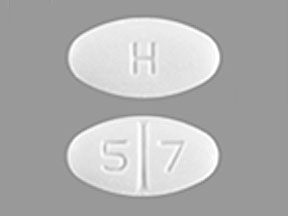
Torsemide Coupons & Savings Card – Discount Prices from $5.10
Generic for: Soaanz
My prescription
Edit
10MG, Torsemide (30 Tablets)
Select pharmacy

CVS
$19.17
COUPON PRICE
Walmart
$5.10
COUPON PRICE
Albertsons
$8.15
COUPON PRICE
Walgreens
$9.40
COUPON PRICETorsemide savings card
Show this card to your pharmacist
Walmart
$5.10
BIN
ID
PCN
GRP
019876
LH054B64A3
CHIPPO
LHX
Powered by
Related loop diuretics prescriptions
More prescriptions for hypertension
Related loop diuretics prescriptions
More prescriptions for hypertension
Price history for Soaanz (brand) & Torsemide (generic)
30 Tablets, 10MG
Average retail price for Soaanz
Average retail price for Torsemide
Average SaveHealth price for Torsemide
Our price history data is based on aggregated prescription data collected from participating pharmacies in America. Our prescription data updates daily to reflect the latest price changes. If you notice a missing data point, it means there wasn't sufficient data available to generate a monetary value for that date.
We analyzed Torsemide prices for (10MG, 30 Tablets) over the last 12 months. The average retail price was $25.65, while the average price using the SaveHealth discount card was $17.24. That's a savings of approximately 32.79% when using our Torsemide coupon.
Compared to the generic version, Soaanz had an average price of $332.58 over the same time period. With the SaveHealth savings card, Torsemide is 94.82% cheaper on average than Soaanz.
*Retail prices are based on pharmacy claims data, and may not be accurate when we don't have enough claims.
Torsemide dosage forms
Dosage Quantity Price from Per unit 5MG 1 Tablet $2.58 $2.58 5MG 30 Tablets $5.00 $0.17 5MG 50 Tablets $13.16 $0.26 5MG 90 Tablets $20.97 $0.23 5MG 100 Tablets $21.63 $0.22 10MG 30 Tablets $5.10 $0.17 10MG 1 Tablet $2.59 $2.59 10MG 50 Tablets $6.83 $0.14 10MG 90 Tablets $16.80 $0.19 10MG 100 Tablets $17.67 $0.18
| Dosage | Quantity | Price from | Per unit |
|---|---|---|---|
| 5MG | 1 Tablet | $2.58 | $2.58 |
| 5MG | 30 Tablets | $5.00 | $0.17 |
| 5MG | 50 Tablets | $13.16 | $0.26 |
| 5MG | 90 Tablets | $20.97 | $0.23 |
| 5MG | 100 Tablets | $21.63 | $0.22 |
| 10MG | 30 Tablets | $5.10 | $0.17 |
| 10MG | 1 Tablet | $2.59 | $2.59 |
| 10MG | 50 Tablets | $6.83 | $0.14 |
| 10MG | 90 Tablets | $16.80 | $0.19 |
| 10MG | 100 Tablets | $17.67 | $0.18 |
| 20MG | 1 Tablet | $9.08 | $9.08 |
| 20MG | 50 Tablets | $12.95 | $0.26 |
| 20MG | 90 Tablets | $21.71 | $0.24 |
| 20MG | 100 Tablets | $22.46 | $0.23 |
| 20MG | 500 Tablets | $46.90 | $0.09 |
| 20MG | 1000 Tablets | $67.50 | $0.07 |
| 20MG | 1170 Tablets | $74.50 | $0.06 |
| 20MG | 6000 Tablets | $273.50 | $0.05 |
| 100MG | 1 Tablet | $9.23 | $9.23 |
| 100MG | 50 Tablets | $25.45 | $0.51 |
| 100MG | 90 Tablets | $33.82 | $0.38 |
| 100MG | 100 Tablets | $35.40 | $0.35 |
Torsemide Warnings
The safety information below outlines the critical warnings and precautions associated with the use of this medication. It's essential to review these details and discuss any concerns with your healthcare provider.
Low Blood Pressure and Kidney Injury: Torsemide is designed to eliminate excess fluid from your body, but this can sometimes lead to excessively low blood pressure or dehydration, which may result in kidney injury. Certain drugs, such as nonsteroidal anti-inflammatory drugs (NSAIDs), can increase the risk of kidney damage. Inform your healthcare provider about all medications you're currently taking before starting torsemide. Regular blood tests will be conducted to monitor your kidney function. Report to your provider if you frequently feel lightheaded or dizzy, as your dosage may need adjustment. If you notice a significant decrease in urination or darker urine, contact your healthcare provider immediately, as these could indicate kidney issues. Be cautious if you're taking other blood pressure-lowering medications, drugs that may harm the kidneys, or consuming alcohol.
Electrolyte and Blood Sugar Changes: Torsemide can alter your body's levels of electrolytes such as sodium, potassium, magnesium, and calcium. Notify your healthcare provider if you experience symptoms like dry mouth, fatigue, dizziness, muscle pain or cramps, rapid heart rate, vomiting, or nausea, as these may indicate an electrolyte imbalance. The risk is heightened if you have existing kidney issues, are on medications affecting electrolytes, or are exposed to hot weather.
Hearing Issues: There is a possibility of experiencing ringing in the ears or hearing loss while on torsemide. This condition is typically temporary and resolves after discontinuing the medication, although rare cases of permanent hearing damage have been reported. The risk increases with higher doses of torsemide or existing kidney problems. Discuss any concerns about potential hearing problems with your healthcare provider.
Contraindications: Do not use this medication if any of the following conditions apply to you, as it may lead to serious health risks. Always consult with your healthcare provider beforehand.
- Previous allergic reactions to torsemide
- Allergy to povidone (related to generic torsemide)
- Inability to urinate
- Hepatic coma (a serious condition involving confusion or loss of brain function due to liver issues)
Torsemide Side Effects
Common side effects:
- Dizziness
- Increased urination
Less common but important to monitor:
- Muscle weakness
- Rash
- Belly pain
- Changes in vision
- Reduced appetite
Serious side effects:
- Severe dehydration and electrolyte imbalance
- Irregular heartbeat
- Low blood pressure
- Serious skin reaction
- Allergic reaction
Torsemide Interactions
Interactions with high risk of serious adverse effects and should be avoided:
Interactions with moderate risk that may require dose adjustment, closer monitoring, or timing changes:
Interactions with low risk that usually do not require a change in therapy:
- ACE inhibitors (such as Lisinopril, Enalapril)
- Licorice
- Ginseng
